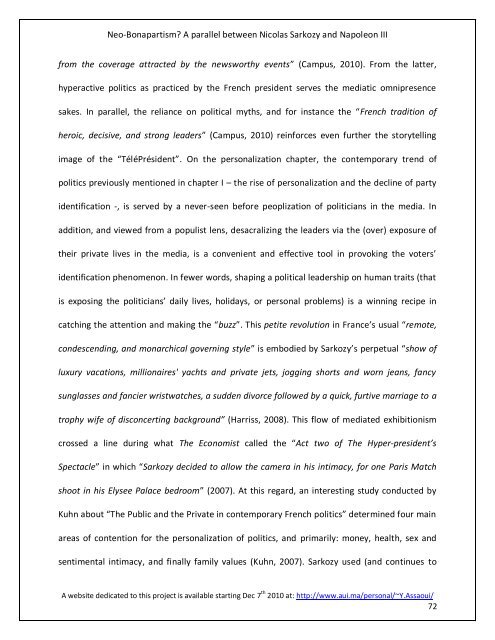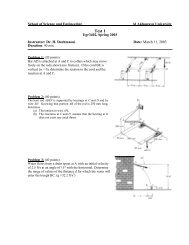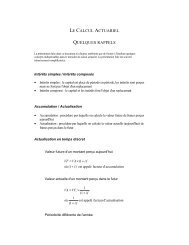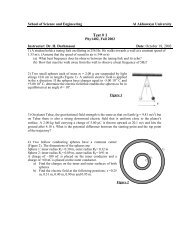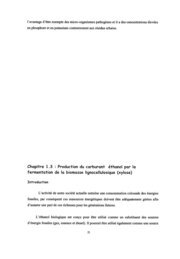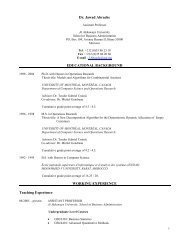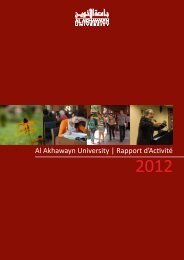Neo-Bonapartism? A parallel between Nicolas Sarkozy and ...
Neo-Bonapartism? A parallel between Nicolas Sarkozy and ...
Neo-Bonapartism? A parallel between Nicolas Sarkozy and ...
Create successful ePaper yourself
Turn your PDF publications into a flip-book with our unique Google optimized e-Paper software.
<strong>Neo</strong>-<strong>Bonapartism</strong>? A <strong>parallel</strong> <strong>between</strong> <strong>Nicolas</strong> <strong>Sarkozy</strong> <strong>and</strong> Napoleon III<br />
from the coverage attracted by the newsworthy events” (Campus, 2010). From the latter,<br />
hyperactive politics as practiced by the French president serves the mediatic omnipresence<br />
sakes. In <strong>parallel</strong>, the reliance on political myths, <strong>and</strong> for instance the “French tradition of<br />
heroic, decisive, <strong>and</strong> strong leaders” (Campus, 2010) reinforces even further the storytelling<br />
image of the “TéléPrésident”. On the personalization chapter, the contemporary trend of<br />
politics previously mentioned in chapter I – the rise of personalization <strong>and</strong> the decline of party<br />
identification -, is served by a never-seen before peoplization of politicians in the media. In<br />
addition, <strong>and</strong> viewed from a populist lens, desacralizing the leaders via the (over) exposure of<br />
their private lives in the media, is a convenient <strong>and</strong> effective tool in provoking the voters’<br />
identification phenomenon. In fewer words, shaping a political leadership on human traits (that<br />
is exposing the politicians’ daily lives, holidays, or personal problems) is a winning recipe in<br />
catching the attention <strong>and</strong> making the “buzz”. This petite revolution in France’s usual “remote,<br />
condescending, <strong>and</strong> monarchical governing style” is embodied by <strong>Sarkozy</strong>’s perpetual “show of<br />
luxury vacations, millionaires' yachts <strong>and</strong> private jets, jogging shorts <strong>and</strong> worn jeans, fancy<br />
sunglasses <strong>and</strong> fancier wristwatches, a sudden divorce followed by a quick, furtive marriage to a<br />
trophy wife of disconcerting background” (Harriss, 2008). This flow of mediated exhibitionism<br />
crossed a line during what The Economist called the “Act two of The Hyper-president’s<br />
Spectacle” in which “<strong>Sarkozy</strong> decided to allow the camera in his intimacy, for one Paris Match<br />
shoot in his Elysee Palace bedroom” (2007). At this regard, an interesting study conducted by<br />
Kuhn about “The Public <strong>and</strong> the Private in contemporary French politics” determined four main<br />
areas of contention for the personalization of politics, <strong>and</strong> primarily: money, health, sex <strong>and</strong><br />
sentimental intimacy, <strong>and</strong> finally family values (Kuhn, 2007). <strong>Sarkozy</strong> used (<strong>and</strong> continues to<br />
A website dedicated to this project is available starting Dec 7 th 2010 at: http://www.aui.ma/personal/~Y.Assaoui/<br />
72


